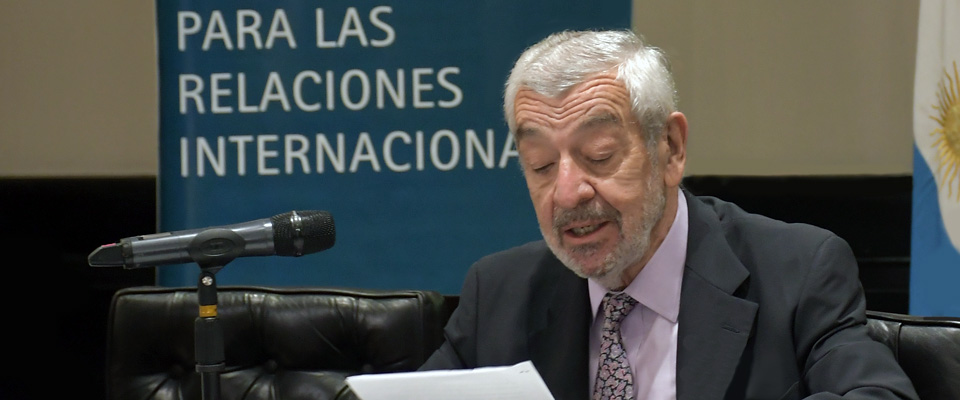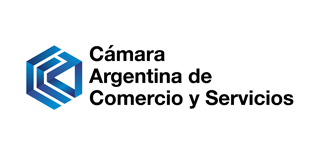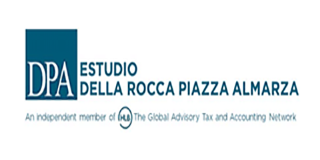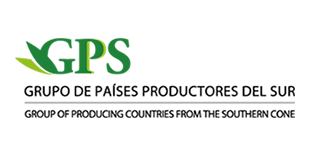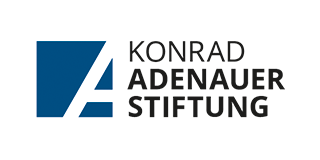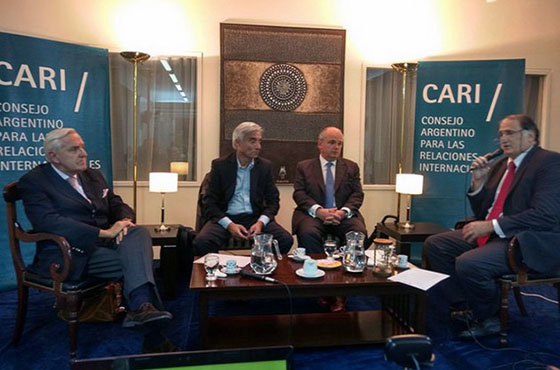
April 24, 2018
Discussion table with the participation of Rosendo Fraga, Eduardo Fidanza and Alejandro Fargosi, moderated by Mariano Obarrio
Written by Esteban P. Fredez
Polarization favors CambiemosAlejandro Fargosi
The first speaker, Alejandro Fargosi, began explaining that the so called grieta is a phenomenon that has always been present throughout Argentine history. However, this trend was recently deepened by social networks influence and the Kirchner governments.
Fargosi stated polarization currently favors Cambiemos. The lawyer emphasized that the way to overcome the grieta may be accomplished by individual practices, meaning an innocuous use of social networks. In such context, he finally highlighted the importance of initiating a re-educational process of coexistence within Argentine society, whose aim is restoring social order and achieving a major social cohesion.
Later on, Eduardo Fidanza proceeded with the session. He referred to the word grieta as a disagreement or a struggle that is not resolved, thus it generates a permanent division. This division expresses itself in a hostile behavior between opposite sides. Fidanza highlighted that although the grieta is understood as a social phenomenon, it has an origin on an individual level in a close way with Alejandro Fargosi’s point of view.
The journalist mentioned that the grieta is composed by opposed social values in a strong debate concerning the identity question. Fidanza insisted that this disagreement involves two opposite identities, from which only one can prevail. He claimed that the fundamental attitudes for the divisions’ maintenance are prejudice and lack of interest in learning about one another.
The grieta’s dispute is between two identities, from which they shall not fit both, but just oneEduardo Fidanza
Taking into consideration the international level, Fidanza raised a question about whether the grieta is a local or a global issue. According to the speaker, since the dawn of times there have been divisions but they’ve been expressed in different ways and at different levels. The journalist also questioned whether divisions crossed entire societies or if they only affected certain social classes. In this sense, he added that divisions can have a variable nature, meaning that they may or may not be a symbolic phenomenon that’s not exactly physical. Additionally, Fidanza discarded that divisions could posses a massive character.
Soon after, the speaker listed a series of increase and intensification the grieta. On the one hand, he mentioned: a) the capitalist system, and b) the media formats¬¬¬ (their attractive depends on the aggression between the network media users and the “populist reason”, from which a division is drawn between the people and the hegemony). On the other hand, he addressed cultural, religious and national homogeneity, the democratic regime and literature factors.
Finally, Fidanza agreed with Fargosi on the need to reeducate Argentine society and surpass the grieta through the mediation and negotiation of both major adversary parties. In addition, he mentioned the relevance of leadership role, particularly parliamentarians’.
Following, Rosendo Fraga expressed an international view on the issue. He first said that the concept of polarization is more appropriate to signify the process from which a society tends towards extreme sides. He commented that initially the Argentine Republic admired the American and European models, while seeking to improve its institutions based on democratic social consensus, the convergence towards the center and the political alternation. However, he also noted that currently the mentioned systems are in crisis.
We are in a moment of crisis of the established political systems and polarization is a universal phenomenonRosendo Fraga
Fraga made an analysis of political polarization at a global level. On the one hand, he mentioned that although China has historically had a political system with gaps, the divisions are contained by a harmony that characterizes Chinese society. On the other hand, according to the speaker, India, the biggest democracy in terms of inhabitants, is currently distressed by a division between castes. In this sense, similar processes can be observed in Latin American countries. All of this leads us to understand that we are in a moment of crisis of the established political systems and that polarization is a universal phenomenon.
Regarding social networks, Fraga highlighted that they have increased aggressiveness and also the dialogue. In fact, he considered that this mass media have favored group segmentation.
Afterwards, the speaker pointed that the grieta between Peronism and anti-Peronism was far superior to the one we are experiencing today, that is, Kirchnerism and anti-Kirchnerism. In fact, he underlined that the depth of the grieta that was seen in the Peronist period was so deep that the antagonism between those social groups persists until today.
Mr. Fraga concluded his presentation by emphasizing the need to moderate language in order to solve the problem, specifically in the way of communicating messages on social networks.
Rosendo FragaPolitical analyst, journalist and historian. He is a collaborator of various journalistic media and consultant of different entities. He is Director of the United States Committee and Executive Member of CARI. He has received several decorations and won a Konex Journalism Award
Eduardo FidanzaHe has a degree in Sociology from the University of Buenos Aires (UBA), specialized in political consultancy and public opinion analysis. He achieved a postgraduate degree in Spain. He is director and partner of “Poliarquía Consultores”. He is a founding partner of the World Association for the Investigation of Public Opinion, of Buenos Aires
Alejandro FargosiHe’s a lawyer, Diploma of Honor from the University of Buenos Aires (UBA). He was Director of the Postgraduate Course in Communications Law at UBA. He’s the president of the Argentine Academy of Arts and Communication Sciences, president of the Argentine Association of Telecommunications Law and director of the Institute of Communications Law of the UBA Law School. In 2010 he was elected as Councilor of the Judiciary of the Nation until 2014
Mariano ObarrioJournalist in the newspaper La Nación, dedicated to the analysis of Argentine politics. Accredited since 2000 in the Casa Rosada
